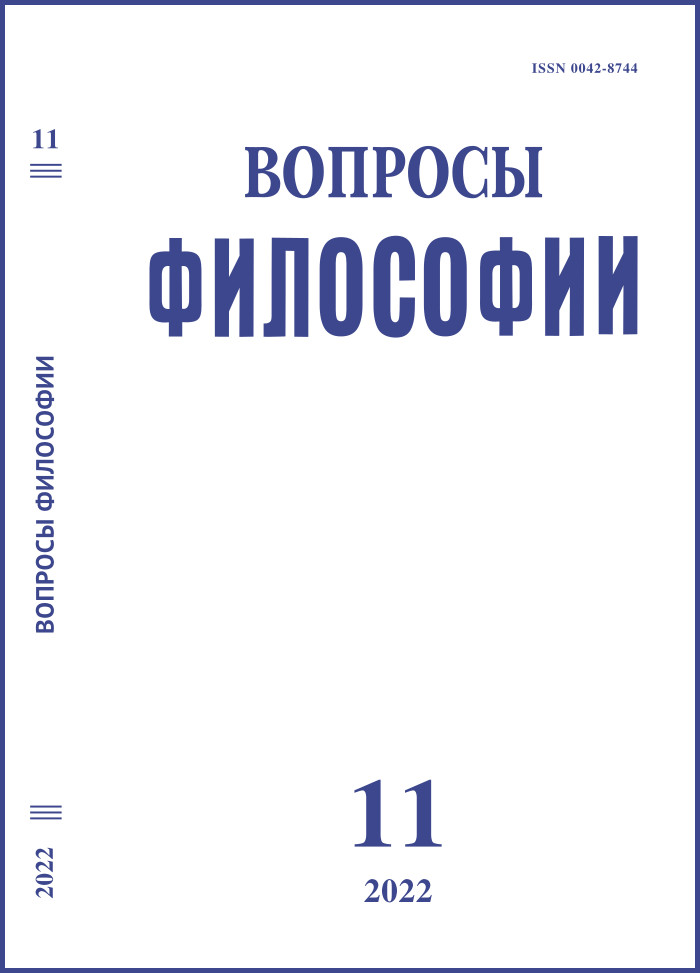Problems of Time and History in Nishitani Keiji’s What is Religion?
DOI:
https://doi.org/10.21146/0042-8744-2022-11-164-176Keywords:
Nishitani Keiji, time, history, emptiness, existence, interdependence, causality, samsara, nirvana.Abstract
The problems of time and history are of particular relevance at the turning points in the development of human society, which can be considered to be the beginning of the 21st century. At the same time, in a changing world, it is important to take into account the ideas about time and history that have arisen in various cultural and civilizational areas. The article analyzes the attempt of a Japanese philosopher Nishitani Keiji belonging to the Kyoto school to formulate a modern concept of history based on the Buddhist view of the world and time. Unlike other religious and philosophical traditions, Buddhist thought practically did not touch upon topics related to history. Using Nishitani's philosophy as an example, the author tries to demonstrate the specifics of the modern Buddhist approach to understanding time and history and to determine its heuristic potential. Due to the fact that today the narrative view of history prevails, introducing a value component into the understanding of history, which turns history into a field of ideological struggle, an analysis of alternative approaches to history that have arisen, including those in non-Western thought, and reflecting its complexity and non-linearity, seems worthy attention. The ontologized model of history proposed by Nishitani poses new problems and thereby opens up new perspectives for considering time and history, such as the relationship of time, history and causality, history and space, definitions of the subject of history and the role of will in history, view of history as a dynamic network with many centers and horizons, understanding the relationship of past, present and future in history.
Downloads
Published
Versions
- 2025-02-07 (2)
- 2022-11-30 (1)

